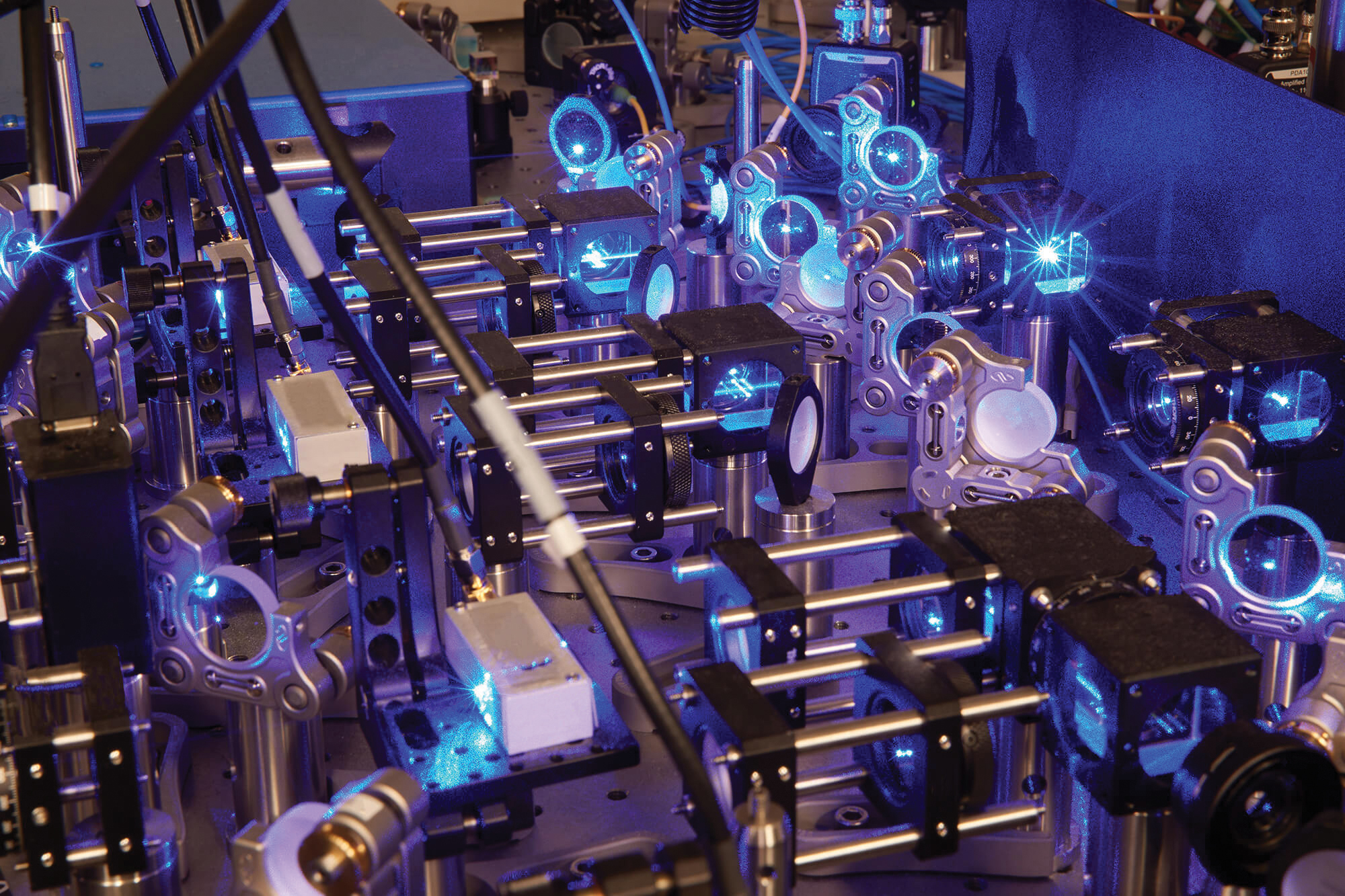When even supercomputers aren’t up to the job, it’s time for quantum computing, and Colorado is rapidly becoming home to a quantum computing cluster.
What is quantum computing, and how does it work? Denver-based Maybell Quantum Industries puts it this way: “Quantum is enabling a reinvention of computing. It has the potential to perform calculations in seconds that would require billions of years for today’s most powerful supercomputers, with profound implications for everything from logistics and agriculture to medicine and climate change. But achieving reliable quantum computation requires qubits — quantum computers’ fundamental building block — be in a state where they can be finely manipulated and communicated with through minute signals.” Maybell’s hardware, especially its Icebox dilution refrigerator, makes that possible.
Maybell was one of 22 Colorado companies approved in 2021 to receive Proof of Concept and Early Stage Capital and Retention grants from the state’s Advanced Industries Accelerator (AIA) Program created in 2013 to promote growth and sustainability in Colorado’s advanced industries. Maybell’s grant was $500,000.
Other companies, too, are working on quantum computing systems from their Colorado locations that one day could be applied to financial services, drug development and other healthcare fields, artificial intelligence and network security among other uses.
Broomfield, Colorado, and Cambridge in the UK are the dual headquarters of Quantinuum, a company formed in late 2021 by Cambridge Quantum, a developer of quantum software, operating systems and cybersecurity, and quantum hardware manufacturer Honeywell Quantum Solutions.
“Quantinuum is now the largest and most advanced integrated quantum computing company in the world,” said Ilyas Khan, CEO of the new company and founder of Cambridge Quantum, at the company announcement. “By uniting the best-in-class quantum software available with the highest performing hardware available, we are uniquely positioned to bring real, quantum computing products and solutions to large, high-growth markets in the near term, the medium term and the longer term as quantum computers scale in capacity and quality.”
Strength in Numbers
In 2021, Boulder-based ColdQuanta joined the IBM Quantum Network, a global community of more than 140 Fortune 500 companies, start-ups, academic institutions and research labs working to advance quantum computing and explore practical applications. Members of the Network and IBM Quantum teams are researching how quantum computing will help such industries as finance, energy, chemistry and materials science. ColdQuanta also is integrating with Qiskit, an open source software development kit (SDK) for working with quantum computers developed by IBM. The company provides Cold Atom Quantum Technology used in computing, sensing and networking. It cools atoms to a few millionths of a degree above absolute zero using lasers and serves as the foundation for these applications.
ColdQuanta’s global customers include major commercial and defense companies, the U.S. Department of Defense, national labs operated by the Department of Energy, NASA and the National Institute of Standards and Technology (NIST), major universities and quantum-focused tech companies. In 2020, the company was selected by the Defense Advanced Research Projects Agency (DARPA) to develop a scalable, cold-atom-based quantum computing hardware and software platform that can demonstrate quantum advantage on real-world problems.
In September 2022, Berkeley, California-based Atom Computing opened a 17,000-square-foot research and development facility in Boulder that will house its second-generation quantum computers. The company plans to invest $100 million in Colorado over the next three years. Governor Jared Polis attended the opening of the facility, noting “the addition of Atom Computing helps further position Colorado as an economic leader for the next big wave of technology development and will create more good-paying jobs for Coloradans.”
Andrew Wilson, NIST’s quantum physics division chief, also was in attendance and noted that the Denver area has the highest density of quantum research and development companies in the nation. Atom Computing has been working with the Joint Institute for Laboratory Astrophysics, the research institute at the University of Colorado Boulder run in partnership by the university and NIST. The university also is home of the CUbit Quantum Initiative, a consortium of companies, including Atom Computing and ColdQuanta, designed to strengthen Colorado’s quantum computing ecosystem by fostering industry partnerships and other resources. Other quantum computing-related programs are in place at the University of Denver and the Colorado School of Mines.

